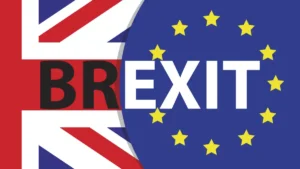In the complex web of global financial markets, one cannot ignore the significant impact that geopolitical events wield on stock exchanges worldwide. Geopolitical events, ranging from political tensions and conflicts to trade disputes and diplomatic relations, have the power to send shockwaves through financial markets. Understanding the historical context and the present-day scenarios can provide investors with valuable insights into navigating the volatile waters of the stock market.
Historical Perspective:
Emergence of World War-1
The assassination of Archduke Franz Ferdinand in 1914 is a historic event that dramatically illustrates how geopolitical occurrences can act as powerful triggers for market fluctuations. The assassination, which took place in Sarajevo, Bosnia, set off a chain of events that ultimately led to the outbreak of World War I. The geopolitical tensions unleashed by the war had far-reaching consequences on global financial markets.
As news of the assassination spread and diplomatic relations unraveled, investors grappled with the uncertainty of an impending global conflict. The prospect of war had a chilling effect on financial markets, causing a significant downturn as investors sought to minimize risk and protect their assets. The outbreak of World War I resulted in widespread economic upheaval, with disruptions to trade, production, and international finance. Stock markets across the globe experienced sharp declines as the war unfolded, reflecting the profound impact of geopolitical events on investor sentiment and market dynamics.
Related Video Link: Outbreak of World War 1 – A Banker’s Perspective
Cuban Missile Crisis of 1962
Similarly, the Cuban Missile Crisis of 1962 stands out as another compelling example of how geopolitical events can send shockwaves through financial markets. The Cold War tensions between the United States and the Soviet Union reached a critical juncture when it was discovered that the Soviet Union had deployed nuclear missiles in Cuba, just a stone’s throw away from U.S. shores. The world held its breath as the two superpowers engaged in a high-stakes standoff.
During the height of the Cuban Missile Crisis, global uncertainty soared, and financial markets experienced a sharp downturn. Investors, fearing the potential consequences of a nuclear conflict, moved to liquidate their holdings and seek safer assets. Stock prices tumbled as geopolitical tensions escalated, reflecting the unease and anxiety permeating global financial markets.
However, the resolution of the Cuban Missile Crisis marked a remarkable turnaround in market sentiment. As the U.S. and the Soviet Union reached a diplomatic resolution, and the threat of nuclear war diminished, investors regained confidence. Stock prices rebounded, underscoring the market’s sensitivity to geopolitical developments and its capacity for recovery once the immediate crisis was averted.
These historical examples serve as cautionary tales, emphasizing the intricate relationship between geopolitical events and market fluctuations. Investors and analysts alike must remain vigilant to global developments, recognizing the potential impact of political decisions on market dynamics and proactively adjusting their strategies to navigate the inherent uncertainties in the geopolitical landscape.
Present-Day Scenarios:

US – China Trade Wars
The trade war between the United States and China is a contemporary example of how geopolitical tensions can significantly impact global financial markets. This economic conflict, marked by tit-for-tat tariffs and trade restrictions, has created a pervasive atmosphere of uncertainty. The ongoing negotiations between the two economic giants have led to frequent shifts in market sentiments, causing noticeable fluctuations in stock prices.
Investors and businesses operating in industries closely tied to international trade find themselves particularly vulnerable to the ebb and flow of these negotiations. As tariff announcements are made and trade restrictions imposed, affected companies may experience disruptions to their supply chains and increased production costs. This, in turn, prompts investors to reassess the value of affected stocks, contributing to the overall volatility in the market.
The unpredictable nature of trade war developments underscores the importance of closely monitoring geopolitical events for investors seeking to make informed decisions. As negotiations progress or stall, market sentiments can swing rapidly, impacting not only specific sectors but also influencing the broader economic landscape.

Brexit (Global Political Instability)
Political instability in key regions can exert a profound and far-reaching impact on financial markets, as exemplified by the protracted Brexit saga. The uncertainty surrounding the United Kingdom’s exit from the European Union created a volatile environment in global financial markets. European stocks were not the only ones affected; the repercussions of the prolonged negotiations were felt worldwide.
As the Brexit process unfolded, investors grappled with the uncertainty surrounding trade agreements, economic partnerships, and the overall stability of the European economy. The fluctuating prospects of a deal or a no-deal scenario influenced market sentiments, leading to shifts in stock prices. Businesses with exposure to the UK and European markets faced uncertainty in terms of regulations and trade conditions, prompting investors to adjust their portfolios accordingly.
Related Video Link: Markets React To Brexit
The Brexit example highlights how geopolitical events that involve major economic players can have Ripple Effects, transcending national borders and affecting international markets. Investors navigating such scenarios must carefully assess the potential consequences and adjust their strategies to mitigate risks associated with political instability.
COVID-19 Pandemic Responses
The COVID-19 pandemic serves as a unique and recent example of how geopolitical decisions related to public health and economic policies can shape market trends. The announcement of widespread lockdowns, travel restrictions, and unprecedented economic stimulus packages had an immediate and lasting impact on stock prices globally.
As governments around the world implemented measures to curb the spread of the virus, industries such as travel, hospitality, and entertainment experienced significant downturns. On the other hand, pharmaceutical and technology companies, particularly those involved in vaccine development, witnessed a surge in stock prices. The dynamic response of financial markets to the evolving pandemic landscape underscored the interconnectedness of geopolitical decisions, public health, and economic indicators.
Investors had to adapt quickly to changing circumstances, reallocating their investments to sectors poised to benefit from pandemic-related developments. The COVID-19 experience reinforced the importance of monitoring geopolitical decisions not only for their direct impact on specific industries but also for their broader implications on the overall market landscape.
Mitigating Geopolitical Risks: Strategies for Savvy Investors
Investing in financial markets always involves an inherent level of risk, and geopolitical events add an extra layer of unpredictability. While it’s impossible to foresee these events with certainty, savvy investors can employ strategic measures to mitigate the risks associated with geopolitical uncertainties.
Diversification
Spreading Risk Across Assets and Regions
A fundamental strategy for risk management in the face of geopolitical events is portfolio diversification. By holding a mix of different asset classes, such as stocks, bonds, and commodities, investors can reduce their exposure to the fluctuations of any single market or sector. Additionally, diversifying across regions and industries helps mitigate the impact of geopolitical events that may disproportionately affect specific areas or sectors.
For example, during a trade war that primarily impacts technology stocks, a diversified portfolio with holdings in sectors less affected by the conflict, such as healthcare or utilities, can help cushion the overall impact on the investor’s wealth. Diversification is a time-tested approach to creating a robust investment portfolio that can weather the storms of geopolitical uncertainties.
Stay Informed
Knowledge as a Shield Against Uncertainty
In an era of rapid information dissemination, staying informed about geopolitical developments is a potent tool for investors. Regularly monitoring news, geopolitical analyses, and global events provides valuable insights into potential market movements. This proactive approach allows investors to anticipate and respond to geopolitical events as they unfold.
For instance, geopolitical tensions in a region known for oil production might signal potential disruptions to the energy market. An investor who is well-informed can adjust their portfolio accordingly, perhaps by reallocating investments to energy stocks or diversifying into alternative energy sources. Knowledge is a powerful defense against uncertainty, enabling investors to make informed decisions in the ever-changing geopolitical landscape.
Risk Management
Setting Safeguards for Market Downturns
Establishing robust risk management strategies is crucial for protecting investments during periods of geopolitical turmoil. One commonly employed tactic is the use of stop-loss orders. These orders automatically sell a security when its price falls to a predetermined level, limiting potential losses during market downturns.
For instance, if an investor sets a stop-loss order at 10% below the current market price for a particular stock, the order would automatically execute if the stock’s price drops by that percentage. This allows investors to define their risk tolerance and protect their portfolio from severe declines triggered by geopolitical events.
Conclusion:
Geopolitical events wield considerable influence over global financial markets, shaping investor confidence and market trends. History serves as a testament to the interplay between politics and finance, and present-day scenarios continue to demonstrate the inherent volatility associated with geopolitical uncertainties. By understanding these dynamics and implementing prudent investment strategies, investors can navigate the ever-changing landscape of the stock market with greater resilience.










1 Comment